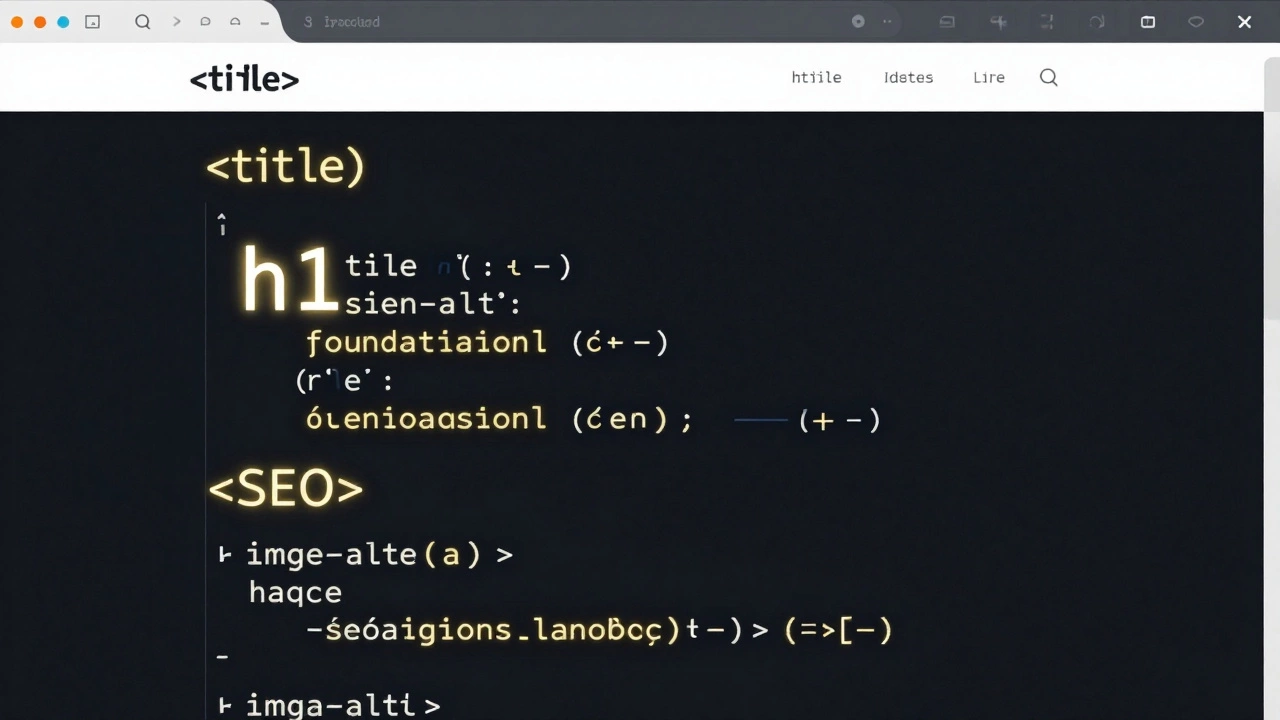
Should I Learn HTML for SEO?
1 Mar 2026HTML is still the foundation of SEO - even for developers using modern frameworks. Learn the key HTML tags that impact search visibility and how to fix common mistakes that keep pages from ranking.
Ever wondered why some sites you build climb Google rankings while others barely get a glance? The answer isn’t magic—it’s solid SEO baked right into the code. As a developer, you already control the building blocks, so adding SEO basics to your workflow can turn a good site into a traffic magnet.
Skipping SEO because you think it’s a marketer’s job is a short‑sighted move. Search engines read every line of HTML you write, and they reward clean, structured code. When you pair solid development skills with a few SEO tricks, you boost visibility and make the client happier.
First off, use semantic HTML. Tags like <header>, <nav>, <article>, and <section> tell crawlers what the page is about, and they also improve accessibility. Search bots love a clear hierarchy, so keep your heading tags in order—start with h1 for the main title, then h2, h3, and so on.
Next, keep your markup lean. Remove unnecessary div wrappers and avoid inline styles when possible. Too much bloat slows page load time, and speed is a ranking factor. Compress images, enable lazy loading, and minify CSS/JS files to shave off precious milliseconds.
Don’t forget about structured data. Adding JSON‑LD snippets for articles, products, or FAQs can earn you rich snippets in search results. Rich snippets increase click‑through rates, which indirectly helps rankings.
Lastly, make URLs readable. A URL like /blog/seo‑tips‑for‑devs is far more crawl‑friendly than /index.php?id=12345. Use hyphens, keep it short, and include primary keywords when it makes sense.
Even the best code needs a quick health check. Tools such as Google Search Console, Lighthouse, and Screaming Frog give you immediate feedback on crawl errors, mobile friendliness, and index coverage. They’re free, easy to set up, and invaluable for debugging.
If you work with platforms like Wix or GoDaddy, know their limitations. Wix has improved its technical SEO in recent years, but it still requires manual tweaks for schema and canonical tags. GoDaddy’s bundled SEO service offers basic keyword tracking, but many developers find it lacks depth compared to dedicated tools.
WordPress users enjoy a treasure trove of plugins—Yoast, Rank Math, and SEOPress handle meta tags, sitemap generation, and content analysis with a few clicks. Choose one that fits your workflow and avoid installing too many plugins, which can slow the site down.
When you’re deciding whether to invest in a premium SEO suite, ask yourself: does the tool save you time, catch errors I’d miss, or provide reports my clients can understand? If the answer is yes, it’s worth the cost.
Balancing code quality with the right set of tools creates a feedback loop—clean code reduces issues, tools catch the occasional slip, and together they push the site higher in search results.
Ready to dive deeper? Check out our articles on GoDaddy’s SEO offering, Wix’s technical SEO, and how HTML stacks up against WordPress for rankings. Each post breaks down a real‑world scenario you might face tomorrow.
Bottom line: as a developer, SEO isn’t an afterthought—it’s part of the building process. Apply semantic tags, keep assets light, use structured data, and pair your work with reliable tools. Your sites will rank better, load faster, and keep clients coming back for more.

HTML is still the foundation of SEO - even for developers using modern frameworks. Learn the key HTML tags that impact search visibility and how to fix common mistakes that keep pages from ranking.

SEO isn't dead in 2024-it's more technical than ever. For web developers, it's no longer optional. Learn how speed, structure, and semantic HTML determine whether your sites rank-or disappear.

Web developers can and should do SEO - it's not a separate skill, but part of building functional websites. Learn the technical SEO basics that matter most: HTML structure, speed, mobile performance, and crawlability.

Google Display Ads show fixed banners across websites, while Responsive Ads use AI to auto-adjust layouts and content. Learn when to use each for better ad performance and lower costs.

Learn how to add basic SEO to your HTML page with simple, practical steps. Improve rankings by optimizing titles, meta descriptions, headings, images, and site structure - no experience needed.

SEO isn't optional for web developers - it's part of building a site that actually works. Learn the real reasons you need SEO, what matters most, and how to do it without becoming a marketing expert.

Yes, you can do SEO on your own website-especially if you're a web developer. Learn what tasks you can handle yourself, what to avoid, and how to use your coding skills to outperform paid SEO services.

Learn which URL structure is best for SEO in 2025. Discover how clean, static URLs improve rankings, click-through rates, and user trust-without complex hacks.

Wix is easy but limited for SEO. WordPress gives you full control to rank higher, earn backlinks, and build long-term traffic. Here's what actually works in 2025.

HTML and CSS are essential for SEO - they structure content and enable fast, mobile-friendly pages. Learn how proper markup and optimized styles help search engines understand your site - and why they’re the silent foundation of ranking.

Discover why web developers must master SEO, learn essential technical SEO concepts, and get a practical checklist to embed SEO into every development workflow.

Get the real scoop on GoDaddy's SEO services. Dive into what they offer, how their tools work, and if their solutions actually help your website rank higher.